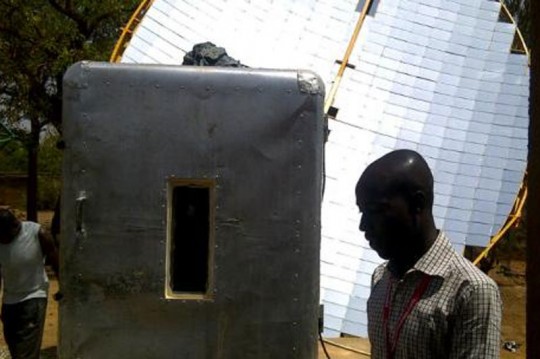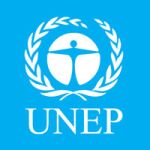African entrepreneurs win UN-backed award for eco-friendly initiatives
African entrepreneurs win UN-backed award for eco-friendly initiatives
 2011 SEED Winner. Solar bread oven in Burkina Faso. Photo: UNEP
2011 SEED Winner. Solar bread oven in Burkina Faso. Photo: UNEP
A company that transforms groundnut shells into fuel briquettes in Gambia and a business in Kenya where women produce aloe-based skin care products are among this year’s winners of a United Nations-backed award recognizing projects that help promote sustainable development.
The 2011 Supporting Entrepreneurs for Environment and Development (SEED) Awards, announced today by the UN Environment Programme (UNEP), spotlights new locally-driven enterprises that have found creative ways to overcome environmental and developmental problems while also creating economic and social opportunities for their communities.The winners will receive a package of individually-tailored support for their businesses.
“The SEED winners illuminate a business model that cannot only be successful but have outcomes that meet the environmental and social imperatives of communities and countries across the globe,” stated UNEP Executive Director Achim Steiner.
In addition to the general SEED Awards, a special Gender Equity Award was announced this year as part of SEED’s partnership with UN Women. The prize recognizes an initiative that not only fulfils the general criteria of the SEED Awards but is also women-led, or owned, and prioritizes gender equality or women’s empowerment as a core objective.
The winner of this award is an initiative in Nepal that reduces landfill waste through recycling and uses organic waste to fuel biogas plants. It consists of over 1,000 households and businesses and is run by a women’s environment committee and supported by a local municipality.
“UN Women is proud to join other UN partners and sponsor the first-ever SEED Gender Equality Award to lend a helping hand to women who drive sustainable development and the Green Economy,” said the agency’s Executive Director, Michelle Bachelet.
“As we face rising disparities, mounting protests, faltering economies, and a changing climate, we must unleash the potential of women to contribute to the solutions our common humanity has to find,” she stated. “Sustainable development depends on economic and social equity, wise management of the environment and demands gender equality.”
This year’s SEED Awards have a special focus on Africa, placing particular emphasis on initiatives from Burkina Faso, Cameroon, Egypt, Gambia, Ghana, Kenya, Madagascar, Nigeria, Rwanda, Senegal, South Africa, Tanzania, Uganda and Zimbabwe.
The SEED Initiative – hosted at UNEP’s World Conservation Monitoring Centre (UNEP-WCMC) – is a global partnership for action on the green economy. By helping entrepreneurs to scale-up their activities, the SEED initiative aims to boost local economies, tackle poverty and improve livelihoods, while promoting the sustainable use of resources and ecosystems.
The winners will receive a package of individually-tailored support for their businesses, access to relevant expertise and technical assistance, and profiling at national and international levels at conferences and through the SEED’s partners and associates.
All of the winners will be honoured at a ceremony in South Africa that will form part of the SEED Green Economy Symposium at the end of March 2012.
###
About UN Environment Programme (UNEP)
Mission: “To provide leadership and encourage partnership in caring for the environment by inspiring, informing, and enabling nations and peoples to improve their quality of life without compromising that of future generations.”

UNEP, established in 1972, is the voice for the environment within the United Nations system. UNEP acts as a catalyst, advocate, educator and facilitator to promote the wise use and sustainable development of the global environment. To accomplish this, UNEP works with a wide range of partners, including United Nations entities, international organizations, national governments, non-governmental organizations, the private sector and civil society.
UNEP work encompasses:
· Assessing global, regional and national environmental conditions and trends
· Developing international and national environmental instruments
· Strengthening institutions for the wise management of the environment
· Facilitating the transfer of knowledge and technology for sustainable development
· Encouraging new partnerships and mind-sets within civil society and the private sector.
UNEP’s global and cross-sectoral outlook is reflected in its organizational structure, its activities and is personnel. Being based in Africa gives UNEP a clear advantage in understanding the environmental issues facing the world’s developing countries.
To ensure its global effectiveness UNEP supports six regional offices, plus a growing network of centres of excellence such as the Global Resource Information Database (GRID) centres and the UNEP World Conservation Monitoring Centre (UNEP-WCMC). UNEP also has major offices in Geneva and Paris, where its Division of Technology, Industry and Economics is situated.
UNEP also hosts several environmental convention secretariats including the Ozone Secretariat and the Montreal Protocol’s Multilateral Fund, CITES (the Convention on International Trade in Endangered Species of Wild Fauna and Flora), the Convention on Biological Diversity, the Convention on Migratory Species, and a growing family of chemicals-related agreements, including the Basel Convention on the Transboundary Movement of Hazardous Wastes and the recently negotiated Stockholm Convention on Persistent Organic Pollutants (POPs).
###
> United Nations (UN).
 The United Nations was established on 24 October 1945 by 51 countries committed to preserving peace through international cooperation and collective security. Today, nearly every nation in the world belongs to the UN: membership totals 192 countries.
The United Nations was established on 24 October 1945 by 51 countries committed to preserving peace through international cooperation and collective security. Today, nearly every nation in the world belongs to the UN: membership totals 192 countries.
When States become Members of the United Nations, they agree to accept the obligations of the UN Charter, an international treaty that sets out basic principles of international relations. According to the Charter, the UN has four purposes:
- to maintain international peace and security;
- to develop friendly relations among nations;
- to cooperate in solving international problems and in promoting respect for human rights;
- and to be a centre for harmonizing the actions of nations.
###
* The above story is adapted from materials provided by United Nations (UN)
** More information at United Nations (UN)




















